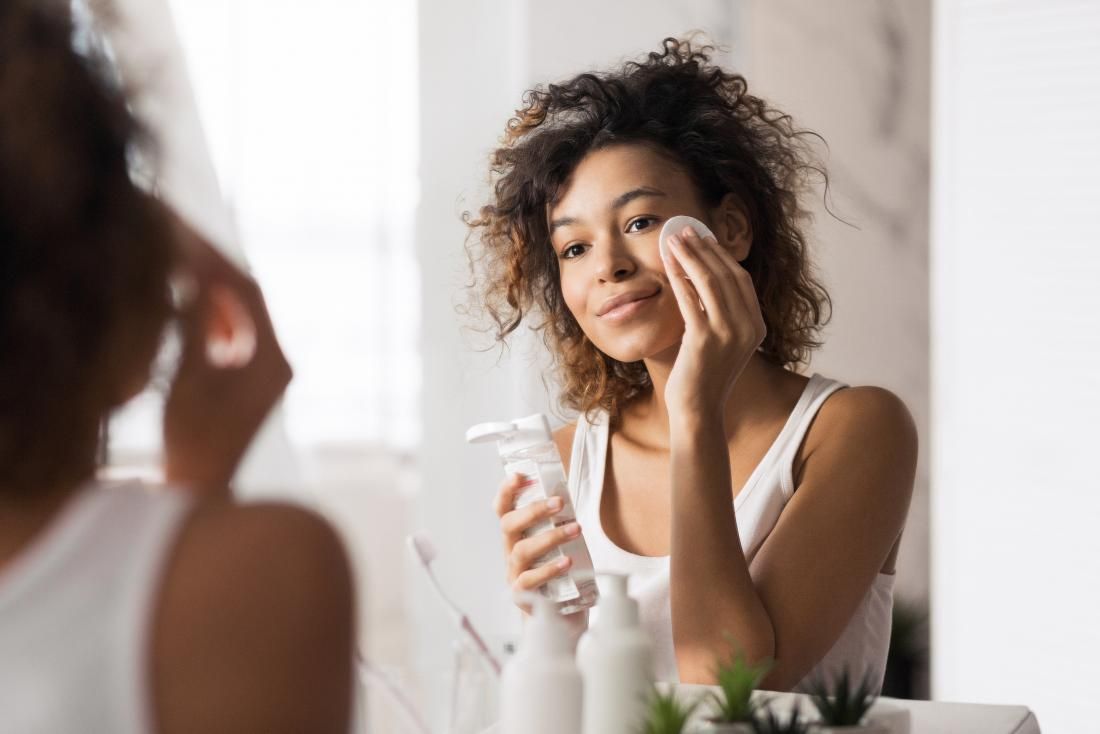From the time of conception to the time of delivery, pregnancy is a very delicate stage of one’s life. This is a period of your life where there’s a blend of joy and anxiety when you equally develop worries about so many things, play by many do’s and don’ts, and strive to manage the changes that come with it; the state of your skin is one of them.
The Skin and Pregnancy
The skin is the body’s largest outermost organ, weighing about 15 percent of total body weight. The skin comprises three layers of tissue: the epidermis (the top layer), dermis (the middle), and hypodermis (the bottom or fatty layer). It also serves several functions like protection, sensation, temperature regulation, food storage, excretion, grip efficiency, etc.
Regarding pregnancy, your belly is not the only body part that experiences changes. The entire skin goes through changes due to your hormones. Dr.Judith Hellman, MD, a board-certified dermatologist, said, "Pregnancy hormonal changes deliver more oxygen and nutrients to all organs, including the skin.”
She further states, "Changes in estrogen and progesterone levels influence skin in all pregnant women” However, to some others, the secreted hormones work in reverse, bringing about visible changes that are considered not so attractive. This is why it is called “Hormonal Fluctuations”. Some notable examples are;

1. Skin Discoloration
Some pregnant women are prone to what is called Chloasma or Melasma. This is the hyperpigmentation that occurs in some regions of the skin. The most common areas are the upper cheek, inner thighs, nose, or other parts of the face. Skin discoloration is quite common amongst about 90% of pregnant women. It is more obtainable in darker-skinned women than those with lighter skin.
2. Acne/Breakouts
Pregnancy hormones can cause extra oil on your skin, which may cause you to have flares of acne and breakouts. Because of this excess oil, you become vulnerable to rashes as a result of heat. Your body, at that point, is more like a “life incubator.” It is important to note that the heat your body emits is necessary for the baby's warmth.
3. Stretch marks and Varicose veins
Stretch marks also occur as a result of the hormones during pregnancy. They soften the fibers of the skin, making it prone to stretch marks, while varicose veins result from the pressure applied by the uterus to the large vein that carries blood back to the heart from your feet and legs.
4. Hypersensitivity
Some pregnant women become hypersensitive during pregnancy. You may notice the sudden development of allergies or peculiarities towards some things you once used. Some stop wearing their favorite jewelry or beauty products as their skin starts reacting to them.
The above and many others are possible skin changes that may occur in pregnant women. However, there are natural ways that help manage problematic skin changes.

SIMPLE AND SAFE PREGNANCY SKINCARE ROUTINES
If you’re lazy and want to improve your skin during pregnancy, below are simple and easy skin care tips.
- 1. Regular Exercise:
Avoid sitting and standing in a position for a long time. Elevate your legs periodically to improve circulation, and take walks! Regular exercise can help with varicose veins and swollen feet.
- 2. Water Therapy:
As much as drinking water may come off as dull, we can’t deny that staying hydrated boosts healthy skin. Water is an essential nutrient for the body cells and helps maintain skin elasticity. Drinking enough water balances the water and oil content on the skin of the face. It helps flush toxins and gives your skin an even tone.
- 3. Warm milk and Honey
Milk and honey contain anti-microbial properties that help cleanse the skin. The lactic acid in milk eats away dead skin cells, while honey opens the pores to let go of dirt. Milk and honey are perfect for glowing skin. Scoop two tablespoons of milk and a teaspoon of honey, stir and drink.
- 4. Fruits
Fruits have been proven to supply the skin with nourishment, which is why most genuine skin products have fruits like carrots, pawpaw, avocado, and banana as their components. It also protects the skin from damage caused by environmental stressors.
- 5. Folic acid
Some experts believe skin discoloration can result from folic acid deficiency. Also, you can ingest prenatal supplements.
- 6. Natural topical remedies
These include tea tree oil and Lavender, which help manage acne and breakouts.
- 7. Use Shea butter and coconut oil
Shea butter has anti-inflammatory properties that can help soothe and fade marks. Coconut oil has antimicrobial properties that help shield the skin from harmful bacteria. A combination of both will smoothen your skin and glow.
- 8. Take Fresh air
Avoid hot baths or anything that may generate excessive heat. Always run cold or warm water over your face or place a damp towel on your skin from time to time. Stay close to areas that are well-ventilated.

Conclusively, you are advised to relax during the duration of your pregnancy. You look at the mirror and wonder where your skin's suppleness has disappeared!
You will retrieve flawless skin and glow as much as you want to. The changes are not out of place but then again, endeavor to check in with your doctor about any skin changes you notice.
If you have any questions or have doubts about the treated topic, kindly drop your questions or concerns in the comment section, and we will target back to you. Don’t forget to like and use the share button if this helps.
Stay PreggSafe!










Comments